- 24
- 51
SINGAPORE --- Calling the result "unacceptable", China's captain Zhang Linpeng has decided to quit his international football career after his team's "humiliating" 2-2 draw with the Lions in a qualifier for the 2026 Fifa World Cup.
Zhang told reporters on Thursday (March 21) during a post-match interview that conceding a late draw against Singapore --- a side almost 70 places beneath China in the men's world rankings --- led to his decision to hang up his boots at the international stage.
"I thought about it for a long while. I think it's time to end my national team career. We could not even beat the Singapore team. I think it's unacceptable, and I find it humiliating," the 34-year-old said, as reported by Hong Kong daily South China Morning Post.
China's hopes of reaching the World Cup for only the second time are in the balance after the draw, AFP news agency reported.
China is ranked 88th in the world, while Singapore is 156th.
Xinhua News Agency, China's state-run media outfit, reported that Zhang's wife posted on social media an account of a text exchange they had after the game, where he sounded despondent.
In his message to his wife, Zhang said that he spoke to the team and told them he would take responsibility for the result.
He added: "I really feel like I cannot do any better than this anymore. Every day I am really putting in 100 per cent to 200 per cent effort but this result, I really cannot accept it, so let's just end it here."
Dubbed "Zhang-mos" by his fans in reference to Spanish defender Sergio Ramos, Zhang plays as a right full back and as a central defender.
Thursday's match saw Singapore fighting back from being two goals down to secure a draw, in head coach Tsutomu Ogura's opening game since he took the reins in February.
China, too, had a new coach Branko Ivankovic, who took over from Aleksandar Jankovic after their Asian Cup first-round exit last month.
The first two goals in the latest match were scored by China's forward Wu Lei, which looked to have dashed any hopes of a positive result for Singapore, before substitute Faris Ramli scored after the restart and Jacob Mahler smashed home a goal to level in front of a 28,000-strong crowd at Singapore's National Stadium.
The two sides will meet again in the return leg at the Tianjin Olympic Centre Stadium in China on March 26.
Singapore Prime Minister Lee Hsien Loong congratulated Ogura and the team on Friday for their "fighting spirit and grit" against one of Asia's traditional football powerhouses.
Mr Lee wrote on Facebook: "Well done to the team and coach Tsutomu Ogura! Every effort counts, so keep working hard and continue flying the flag high. All the best for your upcoming match with China again in Tianjin on Tuesday."
China's coach Ivankovic said after the match: "I told my players at half-time that 2-0 is dangerous. Sadly, we did not do well in the second half.
"We should improve the efficiency to goal in the coming game and have a lot to correct. The team needs to make all efforts to win the next game."
Thursday's match was part of the 2026 Fifa World Cup and 2027 AFC Asian Cup Saudi Arabia qualifier.
Singapore --- in Group C with China, South Korea and Thailand --- now sit at the bottom of the group with one point.
China are in third place with four points, Thailand in second with four points and South Korea top the group with seven points.
The top two of the group will advance to the 18-team third stage of the Asian qualifying tournament.
- 10
- 21
maybe if I utter the correct incantations the baizuos  would see me as one of their own
would see me as one of their own 
- 1
- 8
SINGAPORE: Minutes after his side's sensational comeback against China, Singapore head coach Tsutomu Ogura asked if he could take a swig of water before a post-match press conference.
Nobody could begrudge him a sip, or even a whole bottle, after a performance which was as much his players' as was his.
The Lions showed heart, grit, and immense fighting spirit in the opening game of his tenure as they came back from two goals down to hold China to a 2-2 draw at the National Stadium on Thursday (Mar 21).
A Wu Lei first-half double seemed to have dashed any hopes of Singapore picking up any points in the third match of their World Cup qualifying campaign.
But substitute Faris Ramli gave the Lions a route back into the game before Jacob Mahler also came off the bench to smash home a late equaliser.
And despite a remarkable draw, there is more work to be done, said Ogura.
He told reporters after the game that he was not satisfied with the result and that Singapore could have won.
“Please don't say congratulations,” he added.
Singapore had lost their first two matches in their qualifying group last November, with a 3-1 loss to Thailand and a 5-0 drubbing by South Korea.
But this was a much tighter affair.
And it was a different team, thanks to Ogura. While he said that he was no “magician”, he has clearly worked some wizardry.
Close to 70 places higher in the world rankings at 88, China dominated proceedings from the off.
And with just 10 minutes played, striker Wu Lei capitalised on a pocket of space in the box to head home.
Ogura's men pressed hard but their opponents appeared unfazed as they played their way out from the back on a number of occasions.
Singapore had Hassan Sunny to thank midway through the first 45 as he saved a weak penalty from Wu Lei after Nazrul Nazari was adjudged to have handled in the box.
The save seemed to give the Lions a boost as they launched a number of attacks after that, with midfielder Shah Shahiran coming agonisingly close with a half-volley.
But just as the Lions were about go into the break a goal behind, Wu Lei struck again in the dying seconds of the first half, after Hassan parried a fierce shot into his path.
The last time Singapore beat China in a competitive match was at the 1983 Merlion Cup, with the Lions winning 1-0 in the semi-final, according to the Football Association of Singapore (FAS).
But Ogura's side showed no signs of being overawed. The Japanese coach's message to his team at half-time was simple: Don't be scared, go out there and play your game.
And the Lions heeded his call.
The hosts got their breakthrough in the 53rd minute, after a long ball from Lionel Tan found Faris and the nippy forward squeezed the ball past China's Yan Junling.
The away side were not going anywhere with more than 40 minutes left on the clock, as Fernandinho continued to be a thorn down Singapore's left.
Then it was time for another substitute to get in on the act as Jacob Mahler rifled home in the 81st minute to the delight of the home crowd.
On the opposite end of the stadium, a large swathe of China fans were stunned.
And rather than shut up shop, the Lions went for the win, but were denied a famous result. They could have won a penalty too, as Safuwan Baharudin looked to have been impeded in the box late on.
Despite the draw, Singapore stay rooted to the bottom of their group.
Next week, at Tianjin, the Lions will attempt to do one better against their fancied opponents.
For now, they have a point.
But more than a point, the result represents hope. Hope that Singapore now has a football team which can mix it with the best and hold their own.
- 20
- 19

Since the cessation of nightlife operators at Orchard Towers last August, there has been an increase in the number of massage parlours at Parklane Shopping Mall.
These are not regular health spas, but the kind of massage parlours that have skimpily-dressed women soliciting business from male passers-by.
The mall's management told Lianhe Zaobao that there used to be about 10-15 seedy businesses in the building but at least 10 more have set up business there since last November.
"The police would conduct regular raids and such businesses would get suspended but they often reopened for business the following day, as if nothing happened.
“The committee has issued notices to property owners suspected of engaging in such illegal activities, but they denied involvement."
Lianhe Zaobao reported that it spotted at least 10 "massage" or "health" outlets with no name or price list on the storefront. However, the glass panes were covered with advertising posters that made it difficult to see what was inside the shops.
The Chinese daily's reporter was approached by two women offering services for a fee of between $50 and $200.
A 52-year-old health spa business owner at Parklane Shopping Mall told Lianhe Zaobao: "There used to legitimate stores here, such as music shops and studios. But since the emergence of these seedy businesses, the legitimate business have moved away, which is regrettable."
- 6
- 18
As the U.S. Presidential Election winds down, people on the internet are learning more about the next President-elect, Joe Biden.
Here's another throwback
During a state visit to Singapore in Jul. 2013, Joe Biden and his spouse Jill were presented with an orchid hybrid named “Dendrobium Joe and Jill Biden”.
According to Straits Times (ST), the couple was presented with the birth certificate of the orchid hybrid with purple flowers at the National Orchid Garden by the National Parks Board (NParks).
This orchid hybrid is "vigorous, free-flowering and long-lasting", NParks described.
The flowering sprays are about 30 to 50 cm long, bearing as many as 20 flowers each.
All floral parts are violet-blue for this hybrid.
Biden, who was then the vice president of the United States, was on a two-day state visit to discuss maritime issues and trade in Asia with Japanese Prime Minister Shinzo Abe and Singapore officials, reported ST. 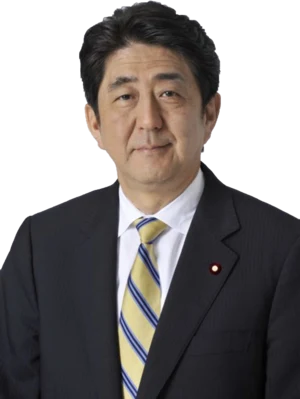
PM Lee unveils orchid named after President Obama and his wife at White House state dinner
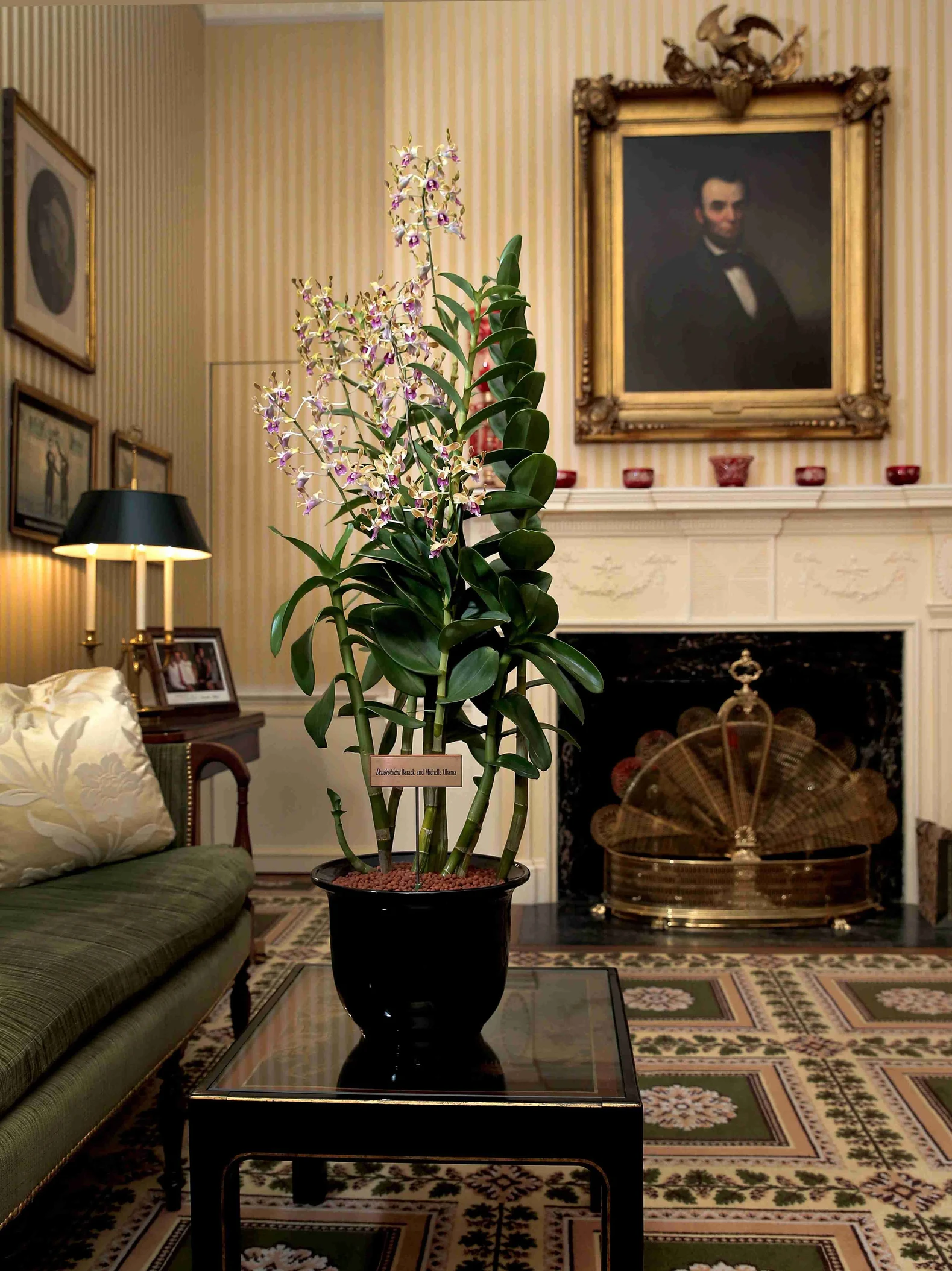
The Dendrobium Barack and Michelle Obama is a cross between two hybrids: the Hawaiian Dendrobium Pink Lips and Singapore's Dendrobium Sunplaza Park. PHOTO: MCI
WASHINGTON - United States President Barack Obama and his wife Michelle now have a Singapore-grown orchid named after them.
The Dendrobium Barack and Michelle Obama was unveiled by Prime Minister Lee Hsien Loong at the White House state dinner in their honour on Tuesday night (Wednesday morning, Singapore time).
"To mark the 50th anniversary of our relations, Singapore has named an orchid hybrid in honour of President and Mrs Obama," PM Lee said.
The toast to the presidential couple came with a quip about the conspiracy theories in the US that claim President Obama was actually born in Kenya.
"This is a hybrid of breeds native to Singapore and Hawaii, where the President was born, most of us believe," said PM Lee to laughter from the dinner guests, who included prominent US politicians and members of the Singapore delegation.
Dendrobium Barack and Michelle Obama is a cross between two hybrids: the Hawaiian Dendrobium Pink Lips and Singapore's Dendrobium Sunplaza Park. Each spray bears just over a dozen yellow blooms with purple lips.
The National Parks Board described the new hybrid as a "vigorous and free flowering" bloom.
- 27
- 27
- 5
- 14
- 24
- 32
it's this  again
again
On 11 Feb, her 32-year-old male assistant confirmed with the authorities that they had staged the attack for the stream, noted China Times in a separate report.
The assistant dressed up as a middle-aged lady and threw eggs at the streamer while she was ‘live'.

@cyberdick latest
 from your favourite foid
from your favourite foid 
- 21
- 31
The Assurance Package will be increased by S$1.9 billion in Budget 2024
This is to help households handle the cost of living amid economic uncertainties
The package includes cash handouts, utility rebates and more
The enhancements to the package are also designed to ensure lower-income families and larger households get more support
SINGAPORE --- To better support households with the cost of living, some 2.5 million Singaporeans age 21 and above will receive cash payouts of between S$200 and S$400 in September 2024.
Finance Minister Lawrence Wong said on Friday (Feb 16) that these payouts are part of a S$1.9 billion enhancement to the Assurance Package.
The package was first announced in 2020 as a S$6 billion raft of measures to cushion the impact of the Goods and Services Tax (GST) hike. It was topped up by S$640 million at Budget 2022, and S$3 billion in Budget 2023.
Beyond the Assurance Package, Mr Wong said the GST Voucher Fund will be raised by S$6 billion to "permanently defray GST expense for lower and middle-income households".
WHY IT MATTERS
Mr Wong, who is also the Deputy Prime Minister, noted in his Budget 2024 speech that while inflation started to moderate last year, economic growth also slowed, resulting in declining real incomes.
"While we expect the situation to improve this year, there are uncertainties in the outlook," he added.
The Assurance Package is designed to ensure that lower-income families and larger households — particularly those with seniors and children — get more support, he said.
HOW SINGAPOREANS WILL BENEFIT
Singaporeans aged 21 and above this year will receive a one-off cash support of between $200 and $400 in September 2024.
To qualify, they must have an assessable income of not more than S$100,000, and not own more than one property.
Those who earn less than S$22,000 will receive S$400, while those who earn between S$22,000 and S$34,000 will earn S$300.
Singaporeans who earn between S$34,000 and S$100,000 will receive S$200.
About 2.5 million Singaporeans will receive the cash payment.
CDC Vouchers
All Singaporean households will receive an additional S$600 in CDC vouchers, half of which will be disbursed in end-June, and the other half in January 2025.
The vouchers will be split equally for spending at participating merchants or hawkers, and at supermarkets.
This will benefit about 1.4 million Singaporean households.
U-Save rebates
Housing and Development Board (HDB) households will receive an extra U-Save rebate this year.
HDB households whose members do not own more than one property will receive 2.5 times the amount of regular GST voucher U-Save rebates in this financial year.
Depending on the HDB flat type, households will receive up to S$950 in U-Save rebates from the enhancements in this Budget, GST Voucher U-save and Assurance Package U-Save.
The rebates will be given out in April, July and October this year, and in January 2025.
About 950,000 Singaporean households are expected to receive these rebates.
S&CC rebates
An additional one-off Service and Conservancy Charges (S&CC) rebate will be given to eligible HDB households.
Households living in one- and two-room HDB flats will receive four months of such rebates, while those living in three- and four-room flats will receive three months of the rebates.
Those in larger flats will receive two to 2.5 months of S&CC rebates.
Similar to the U-Save rebates, the S&CC rebate will be given out in four tranches — April, July and October this year, and in January 2025.
MediSave bonus
Aside from the Assurance Package and GST Voucher enhancements, Mr Wong also announced Singaporeans aged 21 to 50 will receive a one-time MediSave bonus of up to S$300.
The amount received will be tiered based on the year of the individual's birth, the number of property they own and the annual value of their residence.
Singaporeans born in 1974 to 1983 will receive a bonus of S$300 if they own less than one property, and the property's annual value is less than S$25,000.
Those born between 1984 and 2003 will receive S$200 if they own less than one property, and the property's annual value is less than S$25,000.
Singaporeans with more than one property or who own a property with an annual value of more than S$25,000 will receive S$100 less than their counterparts who were born in the same year.
About 1.4 million Singaporeans will benefit from the bonus, which will help them cover smaller medical bills and insurance premiums, said Mr Wong.
The bonus will cost the Government S$0.3 billion.
LifeSG credits for servicemen
All past and present national servicemen will receive S$200 in LifeSG credits in November 2024.
National servicemen enlisting by Dec 31 this year will be eligible for the credits as well.
These credits can be used to buy goods and services at physical and online merchants offering PayNow UEN QR or Nets QR payment, or both, using the LifeSG mobile application.
This will cost the Government S$240 million and benefit 1.2 million national servicemen.
"I hope this will go some way in expressing our appreciation and gratitude to our national servicemen as well as their families for all that they have done, and continue to do for our country," Mr Wong said.
Tax Rebates
Singaporeans will receive a personal income tax rebate of 50 per cent for the Year of Assessment 2024.
This rebate will be capped at S$200 “so that the benefits go mostly to our middle-income workers”, said Mr Wong.
The rebate will cost the Government S$350 million.
Those with dependants will also find dependant-related relief schemes easier to attain, Mr Wong said.
From the Year of Assessment 2025, the annual dependant income threshold will be increased from S$4,000 to S$8,000.
This means that under the new threshold, a parent or caregiver can claim dependant-related tax relief as long as their dependents earn an annual income of S$8,000 or less.
- forgotpw : Tldr; no
- 40
- 30
Last week, Prime Minister Lee Hsien Loong expressed hope that more couples would embark on parenthood and hinted that more government support for families aspiring to have children is on the way. Still, he noted that couples will ultimately decide whether to have kids for their own reasons. In a three-part special series this week, TODAY explores what Singapore can do to be a truly family-friendly society that can nudge couples who are on the fence and better support those who already want kids.
Singapore's total fertility rate (TFR) has stayed well below the replacement rate of 2.1 for years, hitting a historic low of 1.04 in 2022 despite hefty investments and policy changes by the Government to encourage parenthood
Five young Singaporeans interviewed by TODAY said a major deterrent to having kids is the financial and emotional burden of raising a child in Singapore today
This includes concerns about lifestyle changes, and raising children amid the anxiety of climate change and the hyper-competitive nature of Singaporean parenting
Experts said that easing the pressures of modern work life and parenting could create a more family-friendly home for those who do want more children or are on the fence
In the meantime, the Government should continue in its current efforts and incentives for parents, as a comprehensive basket of policies and support is key, experts added
SINGAPORE --- When Ms Nicole Lee got married in 2021, she and her husband knew they did not want to have children.
"With the constant turmoil going on globally, and uncertainty about how habitable the earth will be in their possible lifetime, I don't feel a desire to bring any additional lives into existence to witness such a grim future," said the 33-year-old dental surgeon.
The couple also relish the freedom and financial stability of their dual-income-no-kids (Dink) lifestyle.
"(My husband and I) both have hectic work schedules and enjoy having peace and quiet at home, the ability to pursue our interests and hobbies in our spare time and being able to travel easily," said Ms Lee.
"Perhaps these are selfish choices but it would also be unfair to the child to have parents who may resent or not be fully interested in them."
Echoing her sentiments, 24-year-old final-year undergraduate Prithpal Kaur said she is on the fence about having children, as she mulls factors such as financial stability, family support and the rising cost of living.
Ms Kaur, who is engaged and whose fiance works in the medical field, told TODAY: "Our demanding careers might keep us busy and prevent us from spending quality time as a family, so it is important to consider when is the right time to have a child."
Ms Lee and Ms Kaur's sentiments are emblematic of a broader social phenomenon: Globally, fertility rates have been on the decline for decades as young people are becoming ever more hesitant about taking on the responsibilities of parenthood.
The worldwide statistic in 1952 put an average family as having five children. By 2020, this figure had fallen to 2.4, according to a report by the World Economic Forum.
Economic development and a declining fertility go hand in hand: A report by The Economist in June last year found that the largest 15 economies of the world had fertility rates below the replacement fertility level of 2.1.
In Singapore, the total fertility rate (TFR) hit a historic low of 1.04 in 2022, declining from 1.12 in the year before.
Analysts told TODAY last year that the figure was not alarming because it had been the Year of the Tiger when birth rates traditionally plunge. They added that they expected the TFR to climb in 2024, which is the Year of the Dragon. This is traditionally a time when birth rates in Singapore tend to jump, because it is seen as an auspicious year for some Chinese families who go by the horoscope that is linked to the Chinese lunar calendar.
Nevertheless, for years, Singapore's TFR has been well below the replacement rate, or the rate in which each generation replaces itself.
This trend has persisted despite hefty investments and policy changes to encourage parenthood, and also despite young people saying they want kids.
A poll by the Institute of Policy Studies (IPS) in 2023 found that 76 per cent of youths aged 21 to 34 who were married or dating hoped to have children in the future, while an earlier survey in 2021 by the Prime Minister's Office (PMO) found that 92 per cent of married respondents wanted two or more children, but only half of them had achieved that.
TODAY's interviews with young people and experts found that these desires often get overwhelmed by anything from the anxiety of climate change to the hyper-competitive nature of Singaporean parenting.
Experts say it is unlikely that much, if anything, can be done to change the minds of those who are certain they do not want kids.
But if Singapore figures out a way to ease the pressures of modern work life and parenting, it could encourage those who are on the fence, and create a more family-friendly home for those who do want more children.
MORE BABIES PLEASE
Since the 1980s, the Singapore Government has done a lot to try to boost the fertility rate through measures such as lengthening maternity leave, introducing paternity leave, tax cuts for parents, and the Baby Bonus, which offers cash handouts for every baby born.
Most recently in Budget 2023, the Government announced several expansions to existing schemes, including an enhanced Baby Bonus, the doubling of Government-paid paternity leave, and plans to expand childminding service options.
Singapore is not alone among developed nations in these valiant efforts.
France is often hailed as a success story for reversing its slowing TFR --- at least for a while. After two decades of decline, the country's fertility rate started picking up again in the late 1990s before hitting 2.03 in 2010, according to data from its National Institute of Statistics and Economic Studies (Insee).
But its TFR began slowing again in 2011 and fell to 1.68 last year, though it is still among the highest in Europe today.
Other developed nations around the world have experimented with various combinations of parental leave, social reform, financial support and expanded care services but they, too, have had dismal results.
Does this mean that existing government policies to encourage parenthood are a waste of resources? Not at all, say experts.
Despite the lack of success that governments have had in turning around their TFR, experts say it certainly does not mean that Singapore authorities should give up trying to encourage parenthood or stop offering incentives to parents.
"There is no one-size-fits-all solution. More importantly, government support should be all encompassing rather than adopting a narrow focus," said Associate Professor Kang Soon-Hock, who is vice-dean and head of Behavioural Science Core at the Singapore University of Social Sciences.
Beyond financial support however, these policies would do well to also focus on cultural and lifestyle changes that would make Singapore more family-friendly, experts said.
Singapore's pro-parenthood policies do help parents, especially with costs, but cannot address the "centrality of work, career and the desire for security, comfort and social status in middle-class life," said Associate Professor Tan Ern Ser, a sociologist from the National University of Singapore (NUS).
"Moreover, while (the Government) can try to give more time for family and children (through maternity and paternity leave), it can't mitigate the demand of work life. For those doing cognitive or mental work, there is no hard boundary between work and non-work life, made worse by our digital economy," he added.
Agreeing, five young Singaporeans interviewed by TODAY said a major deterrent to having kids, or more kids, is the financial and emotional burden of raising a child in Singapore today.
"(Issues such as) changes in lifestyle, relationship with your spouse, added stress (of having children) and workplace culture can't really be solved by the current government policies," said aviation industry professional and mother of one Susie Chan, 33.
"Ultimately government policies only help to alleviate a small portion of the challenges faced," said Mrs Chan, adding that, while appreciated, they would not prompt her to have more kids.
Others feel that to be a good parent in hyper-competitive Singapore, they have to be able to afford the best possible care and education for their children, which in turn makes them feel that they should not have kids if this is out of reach.
The undergraduate Ms Kaur said she would ideally like to "provide the best" for her future child and fears not being able to compete with other, wealthier parents.
"Coming from an economically disadvantaged (background) myself, I would only want to welcome a child if I am able to fully provide for and support that child in this economy," she said.
FORGET THE 'GOOD LIFE', AIM FOR 'GOOD ENOUGH'
One step towards making Singapore a more family-friendly place is to redefine what success means, experts said.
Instead of pursuing the "good life", young Singaporeans may need to aim for a "good enough" life, which would allow them to be less bound by work and economic aspirations, said NUS' Assoc Prof Tan.
"The desired outcomes would be having a sound mind, healthy body, happy family life, and a manageable work life. I believe that a 'good enough' life would paradoxically also enable one to be productive, through working smart, and creative," he added.
Singaporeans also need to be less demanding on themselves as parents, experts said.
Dr Tan Poh Lin, a senior research fellow at IPS, said: "If we have a pyramid-shaped social hierarchy, with a relatively small class of individuals at the top who go through a very selective process for scarce elite positions in which they are heavily rewarded, and a large bottom class of individuals who are socially and economically less well off and secure, then no matter what birth incentives you put in place, parents will always have a strong incentive to choose quality over quantity."
Parents may choose to have just one child, but ensure that he or she is "given all the advantages of life", she added.
"In other words, the stakes at play in our educational, labour market and social systems determine how competitive parents will need to be."
To help Singaporeans overcome such a mindset, having more room for risk-taking and recovery from failure, especially in the early stages of life where parents are held primarily responsible for their children's success, could be key, said Dr Tan.
"If going to the right primary school means that one has a much better chance at receiving an elite secondary and tertiary education, and conversely if being identified as weak in some academic domains means that these chances are much lower, then parents have no choice but to give it their all," he said.
Instead of rewarding outcomes based on a "unidimensional metric", society could focus on rewarding effort to allow individuals room for exploration of their strengths and weaknesses, likes and dislikes, which can result in better job matches, prevent worker burnout and improve mental well-being, he added.
"For example, instead of ranking students narrowly on how their assignments turned out, rewards could be based on the extent to which they went the extra mile on their own, and what they have learned in the process."
Of course, societal change cannot happen through individual effort alone. Employers and policymakers have to help create a more pro-family culture that enables Singaporeans to prioritise family life over work life if that is what they want, said Assoc Prof Tan from NUS.
This goes beyond a company's human resource policies to encompass shifts in employers' formal, informal, or unspoken expectations, he added.
"Would employers or bosses be willing to set more reasonable key performance indicators (KPIs), thereby allowing employees to have more family time, without having to worry about work?" he asked.
"The fact is, with tough KPIs, one could be on leave or on family holiday and still be thinking about work, which means being physically present, but mentally absent."
Meanwhile, the Government could offer support by looking at ways to improve the quality of life for middle class families, said Associate Professor Daniel Goh, a sociologist at NUS.
Noting that poverty actually allows for a greater TFR because families have more babies as an insurance against future poverty, Assoc Prof Goh added that the considerations for middle class families are different.
"As you go more and more middle class, you tend not to have babies because you have other aspirations and you start to balance things, you start to consider the costs of having a baby," he said.
So, providing more childcare centres, affordable housing and education could nudge couples to have children by helping them realise that the cost of having a child in an already-good environment is low, and their quality of life would not be compromised as a result of having kids, said Assoc Prof Goh.
He also highlighted the importance of speaking with young women specifically to understand their concerns about motherhood.
"Find out the diversity of perspectives and what are their considerations (around whether to have kids or not), and then start to design policies to mitigate the decline of TFR along those lines," he added.
Ms Lee --- who echoed the thoughts of experts, that there is no point in trying to change the minds of couples who do not want to have children --- said: "I think it is good to give as much support as possible to those who want to have more children, especially since it is so challenging in this day and age. Policies should target those who want children but are hindered by limited resources.
"As for those like me who prefer to be Dink, I believe it should be recognised as a valid way of life and we still contribute to society in our own ways."
- 8
- 24
SINGAPORE – The Year of the Dragon is a good year to have babies, said Prime Minister Lee Hsien Loong as he focused on the importance of families at the heart of Singapore's society in his annual Chinese New Year message on Thursday (8 February).
“One important element of family life is having and bringing up children. It is a great joy for parents to bring kids into this world and to watch them learn and grow, reaching one milestone after another and growing up year by year,” he said.
The dragon is a symbol of power, strength, and good fortune, and Chinese families consider a child born in the Year of the Dragon especially auspicious. “So now is as good a time as any for young couples to add a ‘little dragon' to your family.” PM Lee - who was also born in the Year of the Dragon - added.
Efforts made to support parenthood in Singapore
This is not the first time that PM Lee has urged Singaporeans to make more babies. He had acknowledged before that the decision to have a baby is a very personal one, but given the declining birth rates in Singapore, he has continued to encourage couples to do so in what could be his final few months as prime minister.
“I still hope that more Singaporean couples will decide to have more children, and to have them earlier," he said, adding that couple may not realise “how quickly it gets harder with each passing year”.
Indranee Rajah, Minister in the Prime Minister's Office (PMO), shared in Parliament in February 2023 that the resident total fertility rate (TFR) in Singapore dropped to its lowest-ever level of 1.05 in 2022.
This was partly because it was the Year of the Tiger, which generally has fewer births. Singapore's TFR had increased the year before in 2021, but it was driven by a fall in the number of females of childbearing age.
With the lower fertility rates and longer life expectancies, the proportion of those aged 65 and above in Singapore is set to rise further over the next few years.
In his message, PM Lee also pledged to build a “Singapore made for families”, citing the recent change to double government-paid paternity leave from two to four weeks as one of the efforts to support marriages and parenthood. “I am confident they will find parenthood a deeply rewarding and fulfilling journey," he added.
PM ended by wishing all Singaporeans good health and a happy Chinese New Year, saying, “Entering the Dragon year, let us press forward with optimism and determination.”
- 8
- 31
SINGAPORE: Android users in Singapore will automatically be blocked from installing apps from unverified sources, with a new security feature that Google plans to progressively roll out in the coming weeks.
It is part of a trial to better protect users against malware scams and was developed in partnership with the Cyber Security Agency of Singapore (CSA).
"Singapore will be the first country to begin a phased pilot of this feature on Android devices in the next few weeks," Google said in a media release, adding that this builds on the existing Google Play Protect malware protection system.
When users try to install a potentially risky app from sources such as web browsers or messaging platforms - a process known as sideloading - Google's latest security feature will automatically block the app if it demands suspicious permissions such as access to restricted data like SMSes and phone notifications.
Such permissions have been abused by scammers to read users' one-time passwords or spy on screen content, for instance.
Android users will be served an explanation if attempts to download a suspicious app are blocked.
This is Google's latest effort to safeguard mobile users against malware scams.
In a previous update of Google Play Protect - a security program built into Android devices - users were recommended to conduct a real-time app scan to better detect whether an app may be infected with malware. When the scan was completed, users were notified about whether it could be safely installed.
Eugene Liderman, director of Android security strategy at Google, told CNA that this real-time scanning enhancement to Google Play Protect was fully rolled out in Singapore in November 2023.
It has helped identify over 515,000 potentially harmful apps and blocked or warned users almost 3.1 million times when they attempted to install such apps, according to Mr Liderman.
He added that the latest feature that will be rolled out in the coming weeks will offer "vital protection" to many mobile users.
FIGHT AGAINST MALWARE SCAMS
The issue of malware-related scams targeting Android users has made headlines in recent months, raising questions about whether Android devices are more susceptible.
More than 750 cases were reported in the first half of 2023, with victims losing more than S$10 million (US$7.4 million), the police said last September.
Scam victims are often directed to download an Android package kit (APK) file through sources such as websites, messaging apps or file managers.
Google said its newest security feature is designed to look out for suspicious permissions such as access to restricted data like SMSes and phone notifications.
"Based on our analysis of major fraud malware families that exploit these sensitive runtime permissions, we found that over 95 per cent of installations came from internet-sideloading sources," it added.
"The fight against online scams is a dynamic one. As cybercriminals refine their methods, we must collaborate and innovate to stay ahead. Through such partnerships with technology players like Google, we are constantly improving our anti-scam defences to protect Singaporeans online and safeguard their digital assets,” CSA deputy chief executive Chua Kuan Seah said.
Google added that more anti-scam features are in the pipeline.
"This pilot in Singapore is just one of many new things to come to help keep our users safe," said Mr Liderman.
"We will be closely monitoring the results of the pilot to assess its impact and make adjustments as needed. We will also continue to work with other ecosystem partners, as deep industry collaboration and joint user education are key to fighting this evolving threat.”
Besides rolling out new cybersecurity features, Google will also support CSA by continuing to assist with malware detection and analysis, sharing malware insights and techniques, as well as creating user and developer education resources.





 Majulah Singapura!
Majulah Singapura! 













 gets dunked on by daily show presenter
gets dunked on by daily show presenter 








 Ex-Porn Addict Turned Pastor
Ex-Porn Addict Turned Pastor






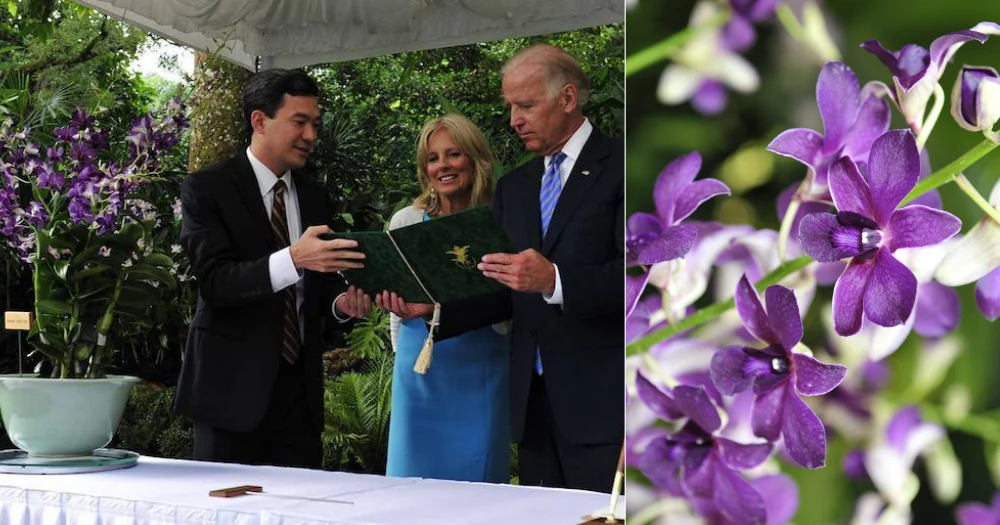
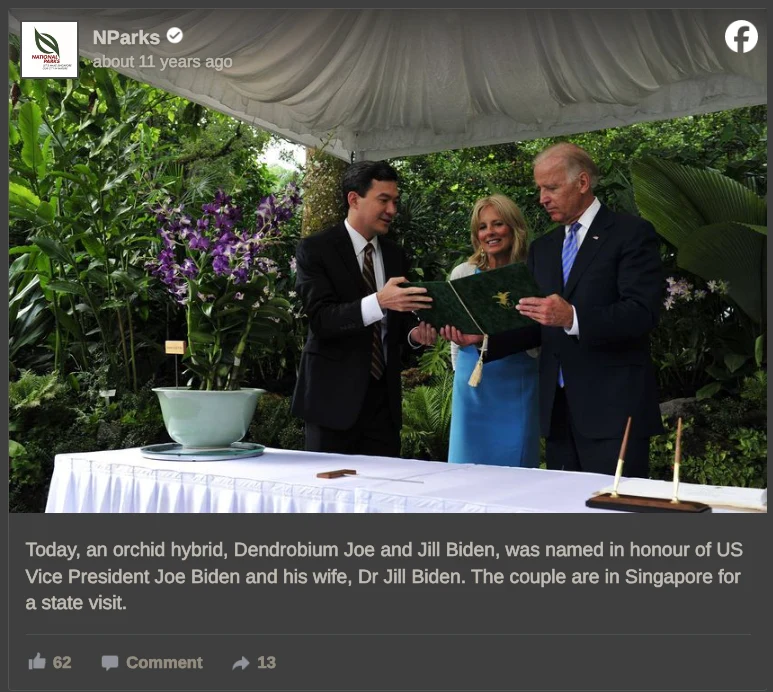
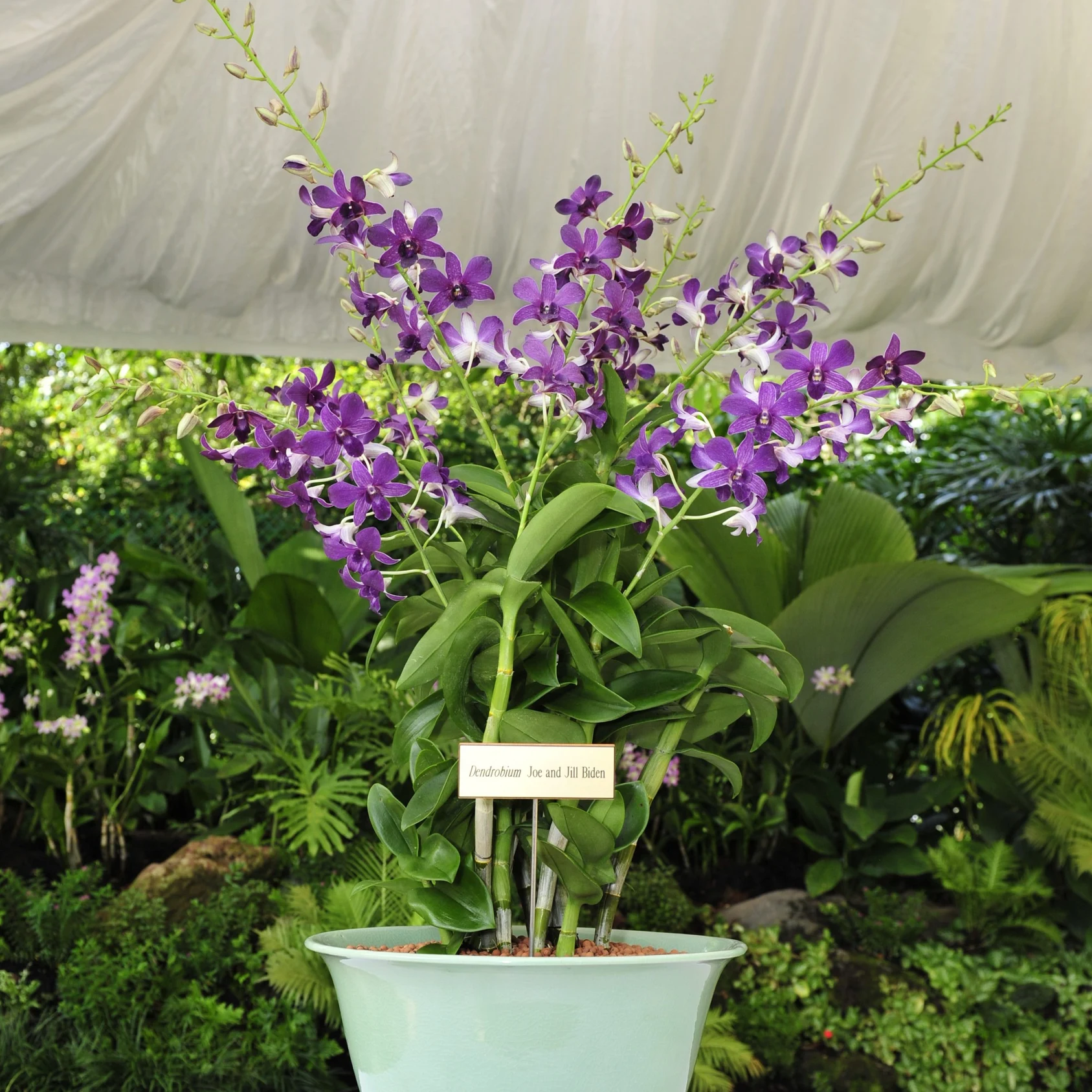


 out
out









 banned from entering Taiwan for up to 5 years over staged egg-pelting attack
banned from entering Taiwan for up to 5 years over staged egg-pelting attack

 to apologise
to apologise 
























](/images/16632652211893444.webp)